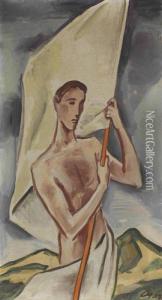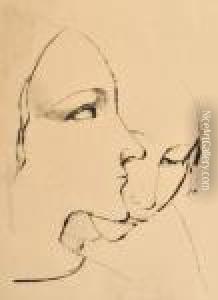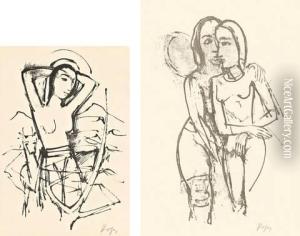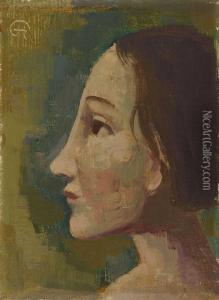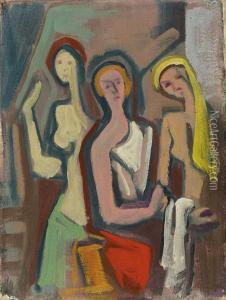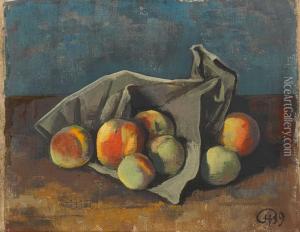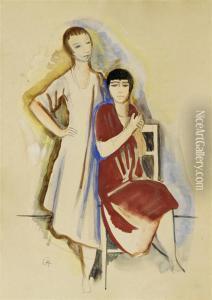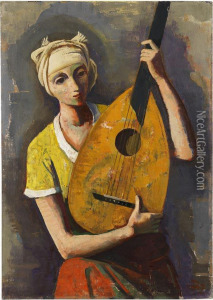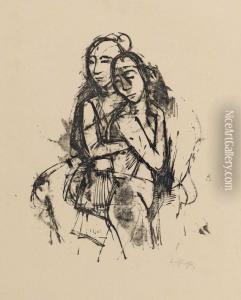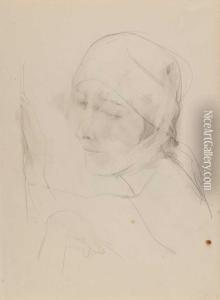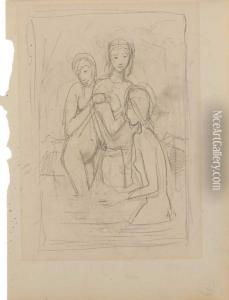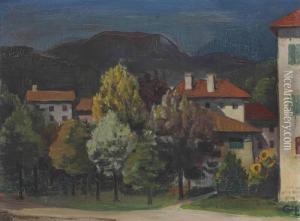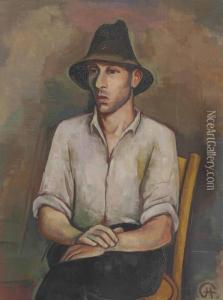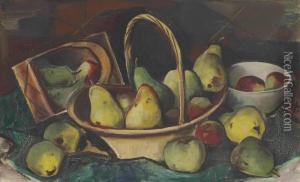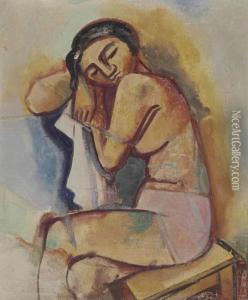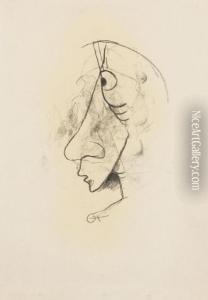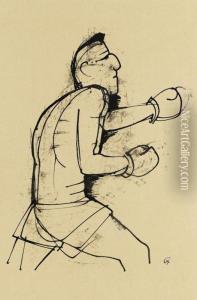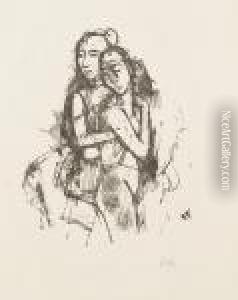Carl Hofer Paintings
Carl Hofer, also known as Karl Christian Ludwig Hofer or Carl Christian Ludwig Hofer, was a German expressionist painter born on October 11, 1878, in Karlsruhe, Germany. He is known for his distinctive, emotive style that often focused on the human figure, set within moodily expressive landscapes or interiors. Hofer's work is characterized by a strong use of color and form, and he is often associated with the German Expressionist group Die Brücke, although he was not formally a member.
Hofer's early career began with an apprenticeship in C.F. Müller's studio, and he furthered his studies at the Academy of Fine Arts Karlsruhe before moving to Paris in 1899. In Paris, he was influenced by the work of symbolist painters and the old masters. He returned to Germany in 1901 and settled in Berlin, where he became a part of the Berlin Secession movement.
During World War I, Hofer was interned as a civilian prisoner in France, and this experience affected him deeply, influencing the somber mood and themes of isolation in his post-war work. After the war, he continued to develop his style, and his paintings from the 1920s showed an even more refined approach to form and color, often featuring solitary figures or enigmatic groupings of individuals.
With the rise of the Nazi regime in Germany, Hofer's work was condemned as 'degenerate,' and he was dismissed from his position as a professor at the Berlin Academy of Fine Arts. Despite these challenges, he continued to paint, and his work from this period reflects his inner turmoil and the external political pressures of the time.
After World War II, Hofer's artistry was once again recognized and celebrated. He was reappointed to his position at the Berlin Academy and continued to teach and paint until his death on April 3, 1955, in Berlin. Throughout his career, Hofer remained committed to the human figure as a subject of his art, and his legacy is marked by his contributions to German Expressionism and his resilience in the face of political adversity.
